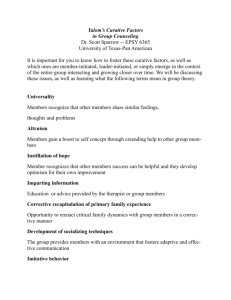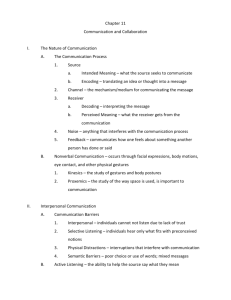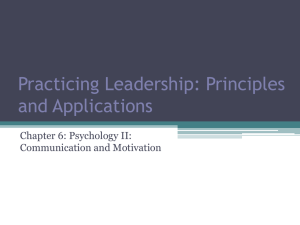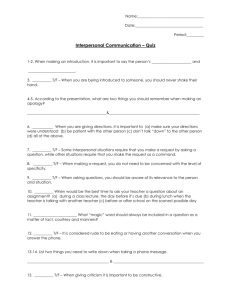Introduction to Interpersonal Communication
advertisement
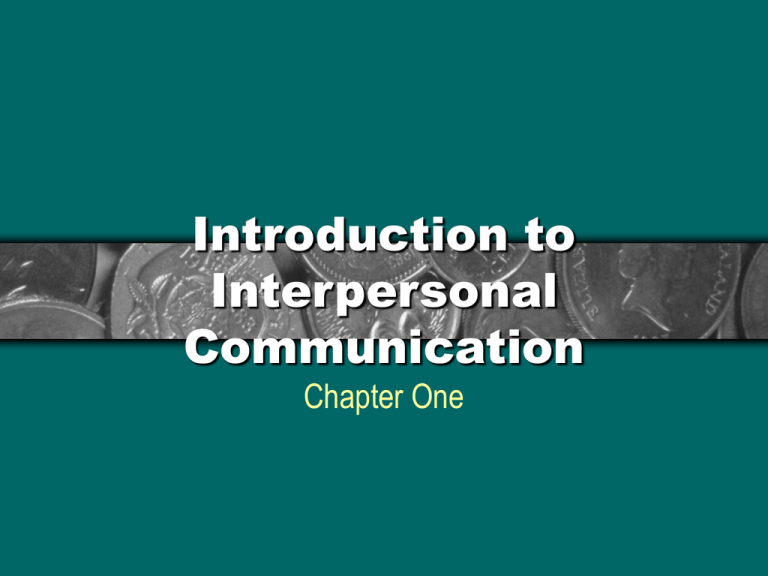
Introduction to Interpersonal Communication Chapter One Interpersonal Communication Defining Interpersonal Communication • Is a special form of human communication • Involves simultaneous interaction between individuals • Involves mutual influence between individuals • Is the fundamental means we use to manage our relationships The Importance of Interpersonal Communication • Improves relationships with our family • Improves relationships with our friends • Improves relationships with our colleagues • Improves our physical and emotional health Communication Definition: • The process of acting upon information Human Communication Definition: • The process of making sense out of the world and sharing that sense with others Interpersonal Communication Definition: p7 • The process of interacting simultaneously with another • and mutually influencing each other, • usually for the purpose of managing relationships An Evolving Model for Human and Interpersonal Communication • Human Communication as Action • Human Communication as Interaction • Human Communication as Transaction Human Communication as Action • Human communication is linear, with meaning sent or transferred from source to receiver. Human Communication as Interaction • Human communication occurs as the receiver of the message responds to the source through feedback. • Linear model --reaction sequence of events. first second Human Communication as Transaction • Human communication is simultaneously interactive. • Meaning is created based on mutual, concurrent sharing of ideas and feelings. • Best model Components of the Human Communication Process • Source – puts the message into code • Receiver – decodes the message • Message – elements of communication to which people assign meaning • Channel – pathway through which messages are sent • Noise – information that interferes with the reception of the message Components of the Human Communication Process, Continued • Encode – translate ideas, feelings, and thoughts into a code • Decode – interpret ideas, feelings, and thoughts that have been put into a code • Context – physical and psychological communication environment • Feedback – response to a message A Model p15 context Noise encode Source Message decode Channel Feedback Receiver Five Principles of Interpersonal Relationships Interpersonal relationships are: • Both systems and processes • Emphasize both message content and personal feelings • Defined by the roles we assume • Governed by social rules • Complementary, symmetrical, or parallel How to Improve Your Own Interpersonal Communication • Be knowledgeable: Learn principles, concepts, and ideas. • Be skilled: Translate knowledge into action. • Be motivated: Resolve to use your knowledge and skill. • Be flexible: Select the behavior; one size does not fit all. • Be other-oriented: Focus on others rather than only on your needs.

